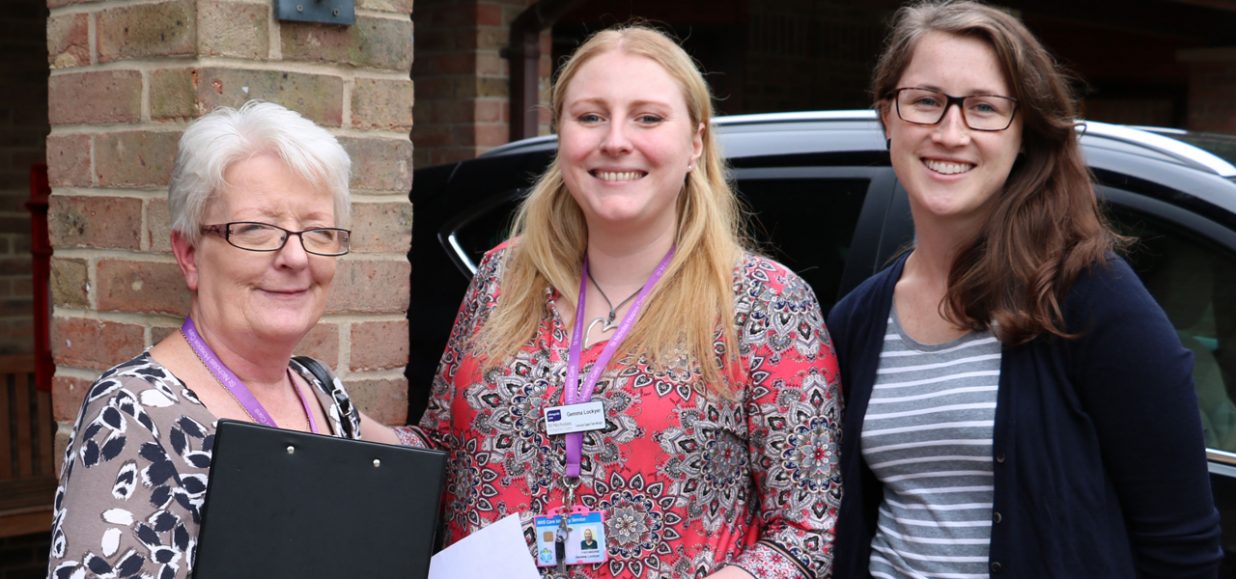Call our 24/7 advice line for health care professionals and families if you need support with symptom management and end of life care - 01284 766133.
Hospice starts to listen to experiences
Over the coming weeks a team of eight, split into four pairs, will conduct interviews and document the experiences of people living with serious illness, death, and bereavement.
Listening to these experiences will help the Hospice understand the journeys people go on from being unaware of support to discovering and using the services available in our healthcare community.
These in-depth interviews will provide many insights, revealing both positive and negative experiences, which the Hospice can find inspiration from to help shape its new model.
Who are we listening to?
To gain a full picture of the end-of-life care needs in our community we will be speaking to people known and unknown to the Hospice services.
Those without a hospice care experience – It’s important for us to talk to people not connected to the Hospice so we can understand their experiences.
Patients – Those who are cared for, both on our in-patient ward and those who are supported through our Orchard Day Centre. We will also chat to those who have been discharged from the ward as well as those receiving our care in the community that do not come into Hospice buildings. That includes those who are supported in their own homes, as well as people who visit outreach sessions held in community venues across West Suffolk and Thetford.
Families – The experiences those caring for family and friends are also important, which is why we will be asking them about their experiences, we want to speak to them about what was important to them when they were caring for their loved one, and how they felt supported, emotional, physically and spiritually.
Healthcare community – As an organisation we are part of a larger healthcare community, and will be speaking to our partners to ensure the role we play allows this to continue in the best way. The views of local GPs, our local hospital, care homes and other healthcare providers will be actively sought.
We will also be speaking to those who deliver the Hospice’s services; this will include a variety of staff that all carry out different roles, as well as those who volunteer their time to the charity.

